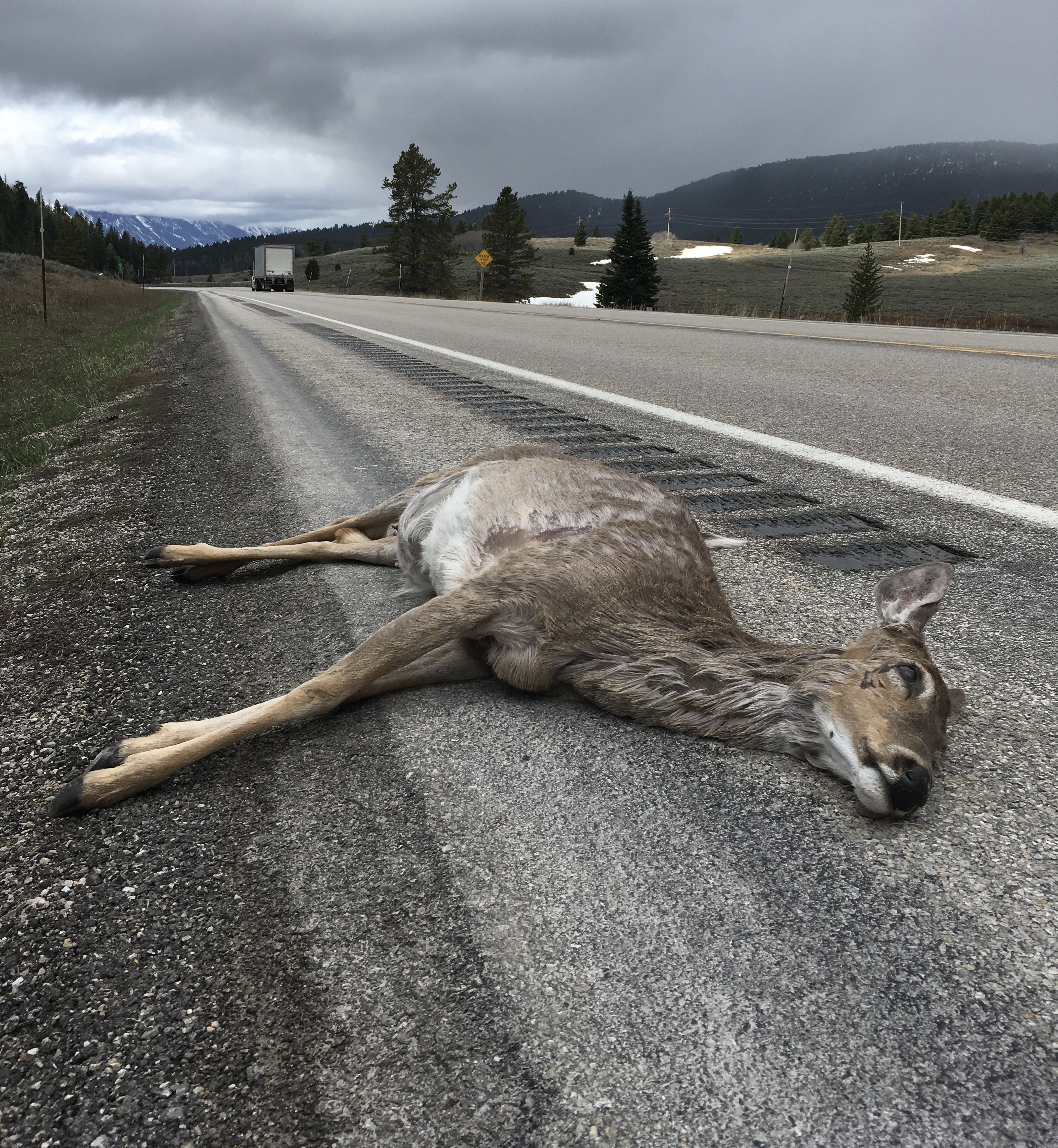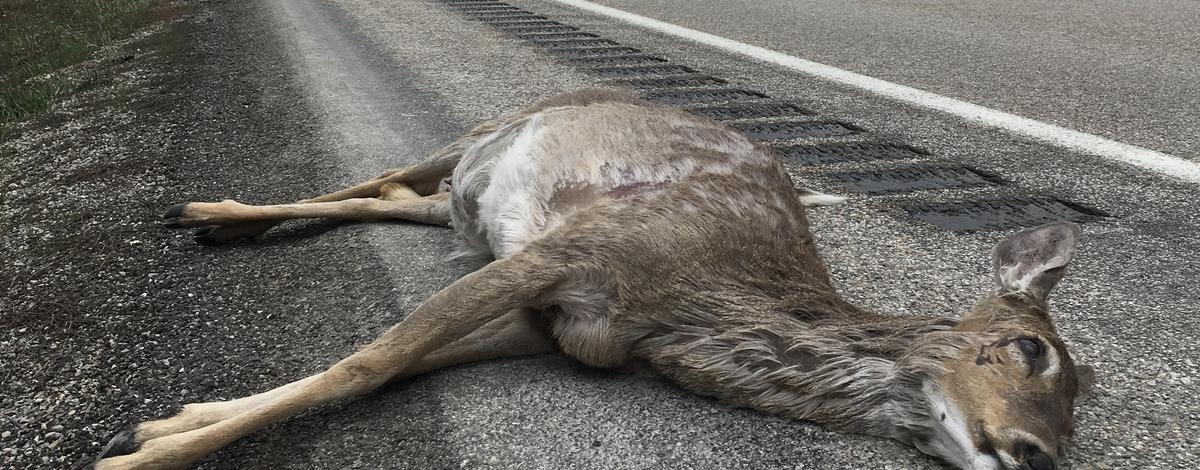Winter is already tough for deer, elk and other big game animals, and being near busy roads and highways can be deadly, so drivers are asked to keep a sharp eye out and avoid costly and potentially dangerous collisions.
With more snow in the higher elevations, big game herds throughout the state migrate to lower elevation winter ranges and cross Idaho’s highways and roads.

“Motorists need to be extra cautious and slow down, especially under low light conditions when visibility is limited,” said Matt Pieron, Fish and Game Mule Deer Initiative Coordinator. “Being extra careful and watchful is your best defense.”
Collisions between vehicles and wildlife are not only dangerous, they are expensive. Hitting a deer or an elk often results in thousands of dollars in vehicle damage, not to mention a preventable loss of wildlife.
The following are precautions to help reduce your chances of an animal collision:
- Big-game animals are especially active at dawn, dusk and at night. Motorists should drive extra cautious during these times.
- Slow down. Driving slower increases reaction time and reduces the chance of a collision.
- Always wear your seat belt. This won't prevent a collision, but it can save your life depending upon the severity of the accident.
- Scan ahead and watch for movement, especially near the fog line and side of the road. When driving at night, watch for shining eyes in headlights.
- If you see one animal cross the road, slow down immediately and look for more to follow.
- Pay extra attention in areas posted with wildlife crossing signs. They are there for good reason.
- Using high beams can help you spot wildlife, but be considerate of other drivers when using them.
- Don’t tailgate. Always keep a safe distance between you and the car in front of you to avoid an accident. If that driver brakes suddenly for an animal in the road, you may not be able to react in time.
- Don't swerve and risk losing control of your vehicle. Try to brake as much as possible and stay on the roadway.
The most serious crashes occur when drivers lose control of their vehicles trying to avoid an animal. It is usually safer to strike the animal than another object such as a tree or another vehicle.
Of course, some accidents are unavoidable. Motorists should report any injury collision to the public safety dispatcher by calling 911, which will send officers to the scene. If possible, move your vehicle to a safe place and alert oncoming traffic with your emergency flashers until law enforcement authorities arrive.
Drivers who come across a dead animal on the side of the road are encouraged to report the roadkill on Idaho Fish and Game’s website. The information collected on wildlife collisions helps identify high-risk areas and possible solutions to make highways safer.
People may also recover and keep certain game animals killed by accidental auto collisions. You have 24 hours to notify Fish and Game if you salvage an animal, and 72 hours to obtain a salvage permit. For more information on Fish and Game's roadkill and salvage webpage, including reporting requirements and a list of species legal to salvage, refer to or contact your nearest Fish and Game office.

